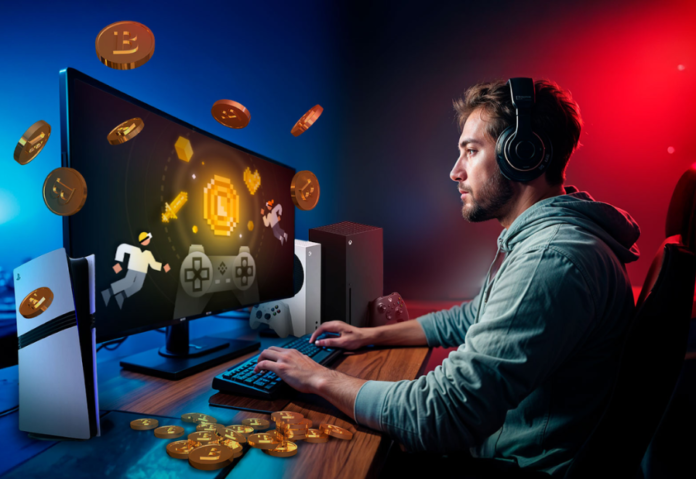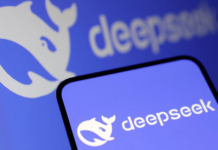In recent years, the gaming world has witnessed a profound transformation, driven by technological innovations. Among the most exciting advancements is the rise of blockchain gaming—a new frontier in the digital entertainment landscape that is reshaping how games are played, developed, and monetized. But what exactly is blockchain gaming, and why is it gaining so much traction? Let’s dive deeper into this revolution.
What is Blockchain Gaming?
At its core, blockchain gaming leverages blockchain technology to provide players with true ownership of in-game assets, transparent economies, and decentralized experiences. Blockchain is a distributed ledger technology that ensures secure, transparent, and immutable transactions. When applied to gaming, it allows players to own digital assets, such as characters, skins, weapons, and even land in virtual worlds, in a way that traditional gaming systems cannot.
In traditional gaming, players buy and use in-game items, but they don’t truly “own” them. The game developer retains control over these assets, and players cannot easily transfer or sell them outside of the game. Blockchain changes this dynamic by enabling players to buy, sell, and trade these items freely within or outside of the game’s ecosystem.
The Impact of Blockchain on the Gaming Industry
- Player Empowerment and Ownership
Traditionally, players have been confined to the rules and systems set by the game developers. Blockchain gaming changes this dynamic by giving players more control over their assets. Ownership is verified through the blockchain, allowing gamers to have actual possession of in-game items. This is especially significant for items like skins or characters that can be rare and valuable. For example, if a player spends hours leveling up a character or acquiring an in-game asset, they can sell it for real money or trade it, something that wasn’t possible with traditional gaming systems.
- New Economic Models
The introduction of the Play-to-Earn (P2E) model has given rise to new ways for players to generate income. In P2E games, players can earn tokens, which can be exchanged for cryptocurrencies or even fiat money. This model not only incentivizes players to engage with the game more frequently but also democratizes the gaming economy, creating opportunities for those who may not have had access to traditional gaming careers, such as esports or game development.
- Transparency and Security
Blockchain’s transparency ensures that all transactions within the game are recorded on a public ledger, making them traceable and verifiable. This level of transparency increases trust between developers and players, and it helps to prevent issues like fraud or cheating. Additionally, blockchain’s decentralized nature provides enhanced security, ensuring that no single entity can alter the game’s rules or assets without the community’s consent.
- Sustainability and Long-Term Value
Unlike traditional games that can be shut down at any moment, blockchain-based games often provide long-term sustainability for their assets. Since assets are stored on a decentralized blockchain, even if the game’s servers go offline, the player’s digital assets still exist and can be used in other games or platforms that support them. This longevity gives blockchain games a unique advantage in creating lasting value for players.
Challenges Facing Blockchain Gaming
While blockchain gaming holds immense potential, it is not without its challenges. Some of the key obstacles include:
- Scalability: Many blockchain platforms struggle with scalability, leading to high transaction fees and slower processing times during periods of high demand. To address this, developers are exploring more scalable blockchain solutions, such as Ethereum Layer-2 solutions or entirely new blockchain networks.
- Regulation: The intersection of gaming and cryptocurrency has raised questions about regulation. How should governments treat the Play-to-Earn model? How should NFTs be taxed? As blockchain gaming grows, it will likely face increased scrutiny from regulators around the world.
- Adoption: Although blockchain gaming has gained popularity, it’s still a relatively niche market. Widespread adoption will depend on factors like ease of use, understanding of cryptocurrencies, and the integration of blockchain technology into mainstream gaming platforms.
- Environmental Concerns: The environmental impact of blockchain, particularly energy consumption, has raised concerns. Many blockchain games currently rely on Proof-of-Work mechanisms, which require significant energy. However, there is a shift toward more eco-friendly solutions, such as Proof-of-Stake.
The Future of Blockchain Gaming
The future of blockchain gaming is incredibly exciting, with potential for further innovation and growth. As technology advances, we can expect to see more sophisticated games, with even deeper integration of NFTs, virtual economies, and decentralized governance systems. The metaverse, a virtual shared space powered by blockchain, is also likely to play a central role in the evolution of blockchain gaming, allowing for interconnected virtual worlds that transcend traditional gaming boundaries.
With massive investments pouring into the blockchain gaming space and more players adopting cryptocurrency, the industry is poised for a boom. For developers, it presents new opportunities to create games that are not only fun but also offer players the chance to earn, invest, and own their in-game assets.
In conclusion, blockchain gaming is not just a trend—it’s a paradigm shift in how we think about digital entertainment. By enabling true ownership, creating new economic models, and fostering a decentralized ecosystem, blockchain has the potential to reshape the future of gaming as we know it. Whether you’re a player or a developer, this is one space that promises to deliver endless opportunities for innovation, creativity, and reward.






